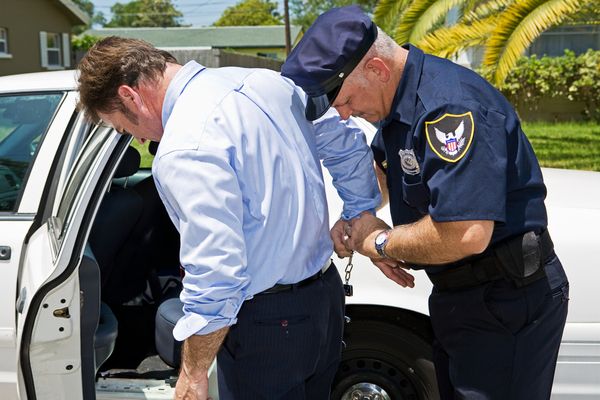Do you occasionally indulge in alcoholic beverages? It’s crucial to be aware that being arrested and charged with DUI (Driving Under the Influence) in Hamilton County or anywhere in Indiana can have lasting repercussions on your life. The law takes such offenses seriously, and the impact on your driver’s license and record can be significant.
Operating a vehicle while intoxicated in Indiana and throughout the U.S. is often considered a serious offense, potentially leading to misdemeanor or even felony charges. To navigate these complex legal waters, securing a skilled DUI defense lawyer is essential. A proficient attorney can aid in understanding the nuances of your case, including blood alcohol content (BAC) limits and other critical aspects.
Facing a DUI charge in Hamilton County, Indiana? Rathburn Law is your go-to resource. Our team of experienced Hamilton County DUI defense lawyers specializes in such cases, providing a robust defense to either get your case dropped or minimize the penalties. Don’t let a DUI allegation disrupt your life—contact Rathburn Law for a free consultation and learn how we can defend your rights and safeguard your future.
What Is the BAC (Blood Alcohol Content) Limit in Indiana?
When you’re involved in a DUI case in places like Hamilton County or Marion County, a term you’ll frequently encounter from the arresting officer or deputy prosecutor is BAC, standing for Blood Alcohol Content. BAC represents the concentration of alcohol in your bloodstream, essentially measuring your level of intoxication and how alcohol has affected your body’s normal functioning.
The relationship between alcohol intake and BAC isn’t always straightforward. Even if two individuals consume the same amount of alcohol, their BAC levels can differ due to factors like age, height, weight, gender, and metabolism. This variation is crucial in DUI defense, as it affects how your body processes alcohol.
A higher BAC level typically signifies more pronounced effects of alcohol, such as impaired judgment, reduced motor skills, and slower reaction times. These effects increase the risk of causing a traffic incident if you decide to operate a vehicle. In Indiana, understanding these nuances is vital, especially when facing DUI charges.
The impact on your driver’s license, potential jail time, and the overall outcome of your DUI case can hinge on the interpretation of your BAC level.
Legal Drinking Limits for Safe Driving in Indiana
Our reputable Hamilton County DUI defense lawyers recommend that all residents of the region understand the legal drinking limits for safe driving in Indiana to be on the safe side of the law.
Here’s a breakdown of the legal drunkenness limits in Indiana:
- Private drivers aged 21 years and above are considered to have exceeded the legal drunkenness limits if their BAC level measures 0.08% or more.
- Drivers of commercial vehicles are regarded to be drunk beyond the legal limit if their BAC level measures 0.04% or higher.
- Drivers below the age of 21 are considered drunk beyond the legal limit if their BAC level is at 0.02% or more.
You should note that just because the state law has set the legal drunk driving limit for drivers at 0.08%, it doesn’t mean that it’s safe for you to drive when you are intoxicated. As a matter of fact, at a 0.04% BAC level, your judgment may already be compromised. This is why commercial drivers aren’t allowed to get drunk beyond this point.
At a 0.06% BAC level, your ability to drive safely will be massively compromised. You are twice as likely to find yourself in a fatal vehicle collision as compared to a completely sober driver.
How Do Police Find Out Your BAC Level?
Indiana state law allows police officers to subject you to several tests to determine whether you are under the influence of alcohol and how drunk you are. These tests include the standard field sobriety test, breathalyzer test, blood test, and urine test.
The standard field sobriety test is commonly administered by a police officer who is a drug recognition expert as a preliminary test to determine whether you are drunk or not. A drug recognition expert is a police officer with advanced training in ascertaining a DUI suspect’s drug impairment level.
Once a police officer suspects that your driving might be impaired by alcohol, they may go on to administer a breathalyzer test to determine your BAC level. The breathalyzer device will provide the officer with your BAC level reading on the spot. If you exceed the legal limit for your driver category, you will be arrested and charged with DUI in Hamilton County.
If the officer suspects that you are not only drunk but also intoxicated with other drugs, they may take you to the police station or nearby medical facility to collect your blood or urine sample. Your blood sample can only be collected by a qualified medical professional.
Suppose you have been in a vehicle accident and suffered injuries that make it difficult to take a breathalyzer test or give a urine sample. In that case, the police officer will ask the medical staff at the scene or the hospital to collect your blood sample. Testing urine and blood samples for BAC levels often take two to three weeks for results to be available.
Call Rathburn Law immediately after being arrested for or charged with a DUI in Hamilton County. The sooner our DUI defense lawyers get started fighting your DUI case, the better it will be for you.
What Penalties Can I Face for a DUI in Indiana?
In Indiana, being convicted of a DUI charge can lead to serious repercussions, including jail time, substantial fines, and the suspension of your driver’s license. The extent of these penalties often hinges on several factors: whether it’s a first-time offense or a repeat DUI/DWI, the specific circumstances of your DUI case, and the skill of your DUI defense lawyer.
Our team at Rathburn Law, serving Hamilton County and surrounding areas, includes some of the most proficient and dedicated DUI defense lawyers in the region. With a deep understanding of Indiana law and significant experience in handling DUI cases, they are committed to delivering robust legal representation.
They’ll employ their comprehensive knowledge and skills to strive for the most favorable outcome in your DUI defense case, aiming to mitigate the impact on your life and driver’s license.
Here’s a breakdown of DUI conviction penalties in Indiana:
Repeat Offenses
- A first-time DUI conviction can result in 90 days to two years of driver’s license suspension.
- A repeat DUI conviction of an offender convicted between five to 10 years earlier can lead to 180 days to two years of driver’s license suspension.
- A second DUI conviction may result in a mandatory 180 hours of community service or a jail term of at least five days. The offender may also have to partake in an alcohol assessment and may also be directed to attend and complete a treatment program.
- A second DUI conviction within five years of the first DUI conviction can lead to a one to two-year driver’s license suspension.
- A third DUI conviction may result in a mandatory 360 hours of community service or a jail term of at least ten days. The offender may also have to partake in an alcohol assessment and may be directed to visit a treatment center.
Based on BAC Levels
- A drunk driver with a 0.08% or higher BAC level who causes serious bodily injury to another faces a jail term of six months to three years and a fine of up to $10,000. The jail term is two to eight years if it’s a second DUI conviction within five years of the first DUI conviction. There’s also the possibility of a two to five-year driver’s license suspension.
- A drunk driver with a 0.08% to 0.15% BAC level faces a jail term of up to 60 days and an up to $500 fine.
- A drunk driver with a 0.15% or higher BAC level faces a jail term of up to 1 year and an up to $5,000 fine.
- A second DUI conviction for a drunk driver caught with a passenger under 18 years of age in the vehicle within five years of their first DUI conviction faces a jail term of six to three years and an up to $10,000 fine.
- A drunk driver with a 0.08% or higher BAC level who causes the death of another faces a jail term of two to eight years and an up to $10,000 fine. If it’s a second DUI conviction within five years of the first DUI conviction, the jail term may be between six to 20 years. There’s also the possibility of a two to five-year driver’s license suspension.
- A drunk driver with a 0.15% or higher BAC level who causes the death of another faces a jail term of six to 20 years and an up to $10,000 fine.
Other
- A drunk driver who causes the dispatching of emergency medical services to the scene of the accident has to make a $10,000 restitution.
- A second DUI conviction within ten years of the first DUI conviction can result in the judge ordering the offender to equip their motor vehicle with an ignition interlock system until they enroll in and complete an alcohol treatment program.
- A commercial driver convicted of a DUI for driving any vehicle will have their commercial driver’s license revoked for one year. If the DUI conviction relates to operating a commercial vehicle carrying hazardous substances, the revocation period will be three years. A second DUI conviction may lead to a lifetime revocation of their commercial driver’s license.
- Drunk drivers under the age of 21 with a 0.02% to 0.08% BAC level may face up to one year of driver’s license suspension and up to a $500 fine. Those with a 0.08% or higher BAC level will be subject to similar DIU penalties as adult offenders.
Can I Refuse a Breathalyzer Test in Indiana?
Certain laws in Indiana, an “implied consent state,” have specific implications for drivers. When you’re in the driver’s seat of a vehicle in places like Hamilton County or anywhere in the state, you’re deemed to have given implied consent for drug and alcohol testing to law enforcement. Refusing a breathalyzer test when requested by a police officer can lead to immediate consequences, such as your driver’s license being confiscated and possible arrest.
If you decline the test, expect an automatic driver’s license suspension for at least one year. This suspension period extends to two years if you have a previous DUI conviction. During your suspension, you won’t be eligible for a hardship license, which can significantly impact your daily life.
In such situations, it’s crucial to contact Rathburn Law as soon as possible. Our seasoned DUI defense lawyers in Hamilton County specialize in cases involving refusal of breathalyzer tests. With their extensive experience and knowledge of Indiana law, they are well-equipped to provide effective legal representation and strive to achieve the best possible outcome for your case
What Is a Felony DUI in Indiana?
A DUI offense is usually a misdemeanor in Indiana, but it can be categorized as a felony under certain aggravating circumstances. The aggravating circumstances are:
- You have earned a second DUI conviction under seven years of the previous DUI conviction – a level 6 felony.
- Your DUI conviction is associated with driving drunk with an underage passenger in the vehicle – a level 6 felony.
- You have a previous DUI conviction associated with causing death or serious bodily injury to another – a level 5 felony.
A felony DUI conviction can tarnish your record forever and severely harm your personal, social, and professional prospects for life. Our DUI defense lawyers near Hamilton County can help you avoid such felony DUI convictions.
Common Defenses in Hamilton County DUI Cases
Our attorneys at Rathburn Law, serving clients in Hamilton County, Indiana, are dedicated to providing a vigorous defense in cases involving DUI charges or refusal to take a breath test. When representing you, they will employ various strategies to challenge the prosecution’s claims, such as:
- Contesting the evidence to prove that you were not the individual operating the vehicle, thus questioning the basis of the DUI charge.
- Arguing that the arresting officer lacked probable cause or reasonable suspicion to stop, detain, or arrest you, which is crucial in DUI defense.
- Highlighting any failure by the arresting officer to read your Miranda rights at the appropriate time, a key aspect of lawful procedure in DUI cases.
- Pointing out if the arresting officer did not provide implied consent warnings, specifically not informing you about the consequences of refusing a drug test.
- Challenging the manner in which the arresting officer administered or evaluated the field sobriety tests, questioning their accuracy and reliability.
- Presenting evidence of medical conditions, dietary factors, or the use of certain oral products that could lead to false BAC level readings from a breathalyzer, impacting the case’s outcome in Hamilton County.
- Asserting that there were errors in labeling or storing your blood or urine sample, thereby calling into question the accuracy of the BAC test results.
- In every DUI case, our experienced DUI defense lawyers are committed to meticulously analyzing every detail and exploring all avenues to protect your rights and achieve the best possible result for your situation.
How Can a Hamilton County DUI Defense Lawyer Help Me?
Our DUI defense attorneys from Hamilton County are experts in defending persons charged with DUI offenses at all stages of the case. You can expect our lawyers to cast doubt on the evidence presented by the prosecution to weaken the case against you. This will likely result in the prosecution offering you a plea deal or dropping the charge.
Our attorneys may also convince the judge to hand you lighter penalties or dismiss the case. The DUI defense provided by our experienced legal team can also help you avoid ending up with a felony DUI on your record.
Contact Our DUI Defense Lawyers in Hamilton County Today For Legal Guidance
You should never let your DUI case proceed without the guidance of a competent DUI defense attorney. At , we provide the region’s most exceptional DUI defense services.
Our lead attorney, Charles Rathburn, has the relevant experience and resources needed to defend people charged with DUI across Indiana and deliver the most favorable outcomes. Call for a free DUI defense consultation. Get started now to find out more about your legal rights.




